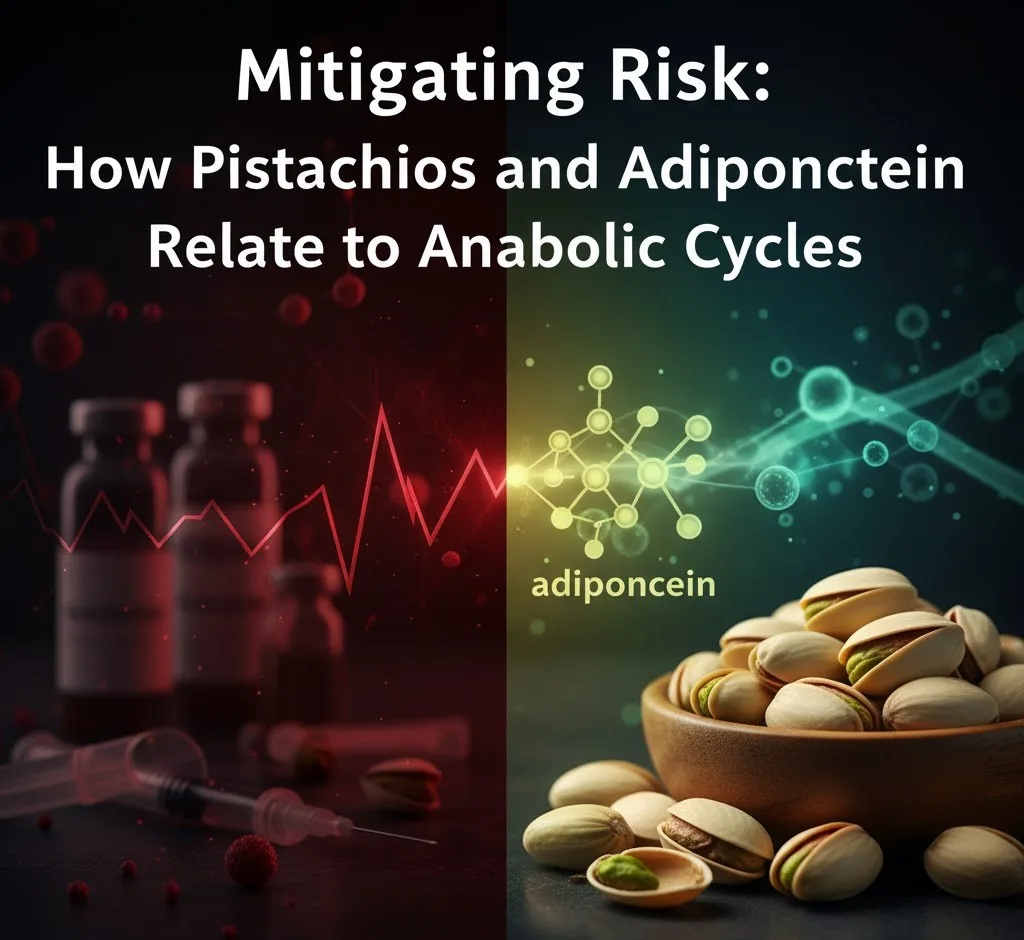For individuals engaged in anabolic steroid cycles, managing cardiovascular (CV) and metabolic health is a paramount concern. Anabolic-androgenic steroids (AAS) are well-documented to negatively impact lipid profiles, often lowering protective HDL cholesterol and increasing harmful LDL, and can contribute to elevated blood pressure and insulin resistance—all factors that increase CV risk.
This is where the hormone adiponectin becomes critically relevant. Emerging information suggests that dietary interventions, such as incorporating pistachios, may offer a supplementary strategy for mitigating some of these metabolic side effects.
The Adiponectin Factor in Anabolic Cycle Management
Adiponectin is an adipocyte-derived hormone with potent protective qualities for the cardiovascular system. According to research published in The Journal of Nutrition, adiponectin is vital because it:
-
Improves Insulin Sensitivity: Crucial for counteracting potential insulin resistance—a known side effect of some AAS.
-
Acts as an Anti-inflammatory Agent: Helps reduce systemic inflammation and oxidative stress, which are typically elevated with AAS use.
-
Protects Against Cardiovascular Disease: Low levels are strongly linked to Type 2 diabetes, coronary artery disease, and hypertension—the very conditions that AAS use exacerbates.
Essentially, high adiponectin is protective, and maintaining its levels is key to metabolic health, particularly when the body is under the stress of an anabolic cycle.
Pistachios: A Natural Tool for CV Support?
The claim that pistachios increase the secretion of adiponectin suggests a simple, natural dietary mechanism to potentially support these protective levels. Pistachios are rich in healthy monounsaturated and polyunsaturated fats, fiber, and powerful antioxidants, all of which are beneficial for heart health and lipid profiles.
While specific, high-level clinical trials linking pistachio consumption directly to the mitigation of AAS-induced side effects are still developing, the mechanism is sound:
-
AAS Use $\rightarrow$ Increased CV/Metabolic Risk (often via reduced beneficial hormones/lipids).
-
Pistachio Consumption $\rightarrow$ Potential Increase in Protective Adiponectin.
-
Increased Adiponectin $\rightarrow$ Supports better insulin sensitivity, reduced inflammation, and improved vascular health.
Conclusion for Cycle Management
For those optimizing their health while running a cycle, the focus is often on pharmaceutical support (like statins or blood pressure medications). However, integrating highly effective nutritional strategies—like a daily serving of pistachios—to naturally enhance a protective hormone like adiponectin presents a simple, evidence-backed approach to supporting the body's defenses against the metabolic strain of performance-enhancing drug use.
In the context of an anabolic cycle, a healthy, heart-conscious diet is non-negotiable, and pistachios offer a compelling, science-supported addition to that nutritional toolkit.

